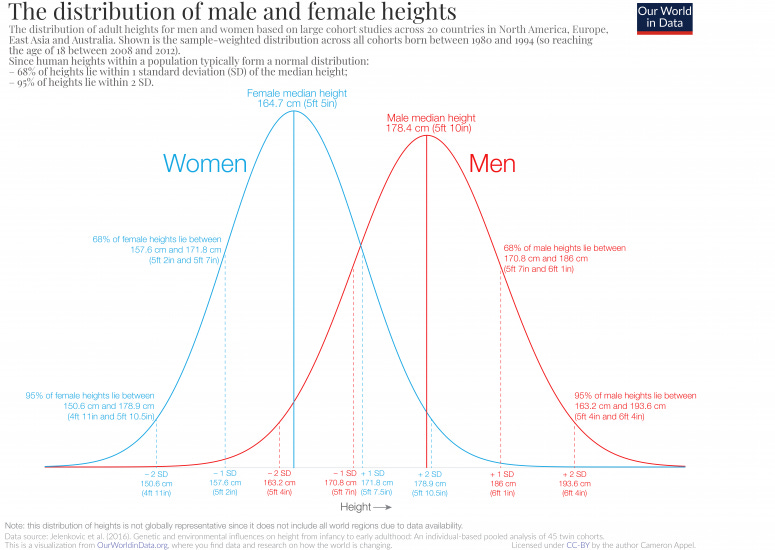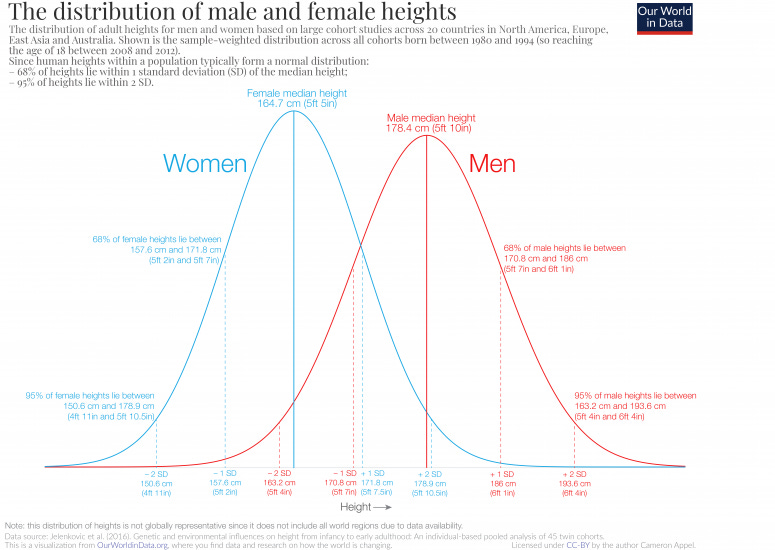
Many missing people and pets were shown on that pole
English
I.
I read the book "Giulio Does Things," written by the parents of Giulio Regeni, the Italian researcher killed by members of the secret services of the Egyptian government (or security services, the names don't matter, they're the ones always doing the dirty work for their master), who apparently suspected Regeni was a spy—for whom and for what reason they suspected Regeni was a spy, it's still unclear.
In short, for those unfamiliar with the facts, Giulio Regeni was a doctoral student at the University of Cambridge, England, and just a few months before he was murdered he had begun his research on the Egyptian autonomous trade and labor unions, whose development and organization was the focus of his Ph.D. A native of Friuli, but with life and study experiences around the world since he was sixteen years old, the twenty-eight years old Regeni had moved to Cairo, Egypt, in September 2015. There, the Italian researcher shared an apartment with two roommates: another student and an Egyptian lawyer—the latter turned out to be also an informant for the secret services of the Egyptian government.
After a month or two from the beginning of his research in Egypt, Regeni was denounced as a spy by his roommate, by a "businessman"—a former musician who has become a union leader—, and apparently also by one of his friends. Some would say it is good to have friends, but I would complete the sentence with “not the kind that Regeni had, though”. *
The Egyptian secret services, based on these reports and who knows what else, perhaps boredom, paranoia, or the appetite for violence that usually lurks in the souls of those whose job is to be the servant of the master, began to "pay attention to him".**
On January 25, 2016, after a few weeks of being tailed, Regeni was snatched and kidnapped by the Egyptian security services near the entrance to a subway station. A few days later, his body, mangled by days of torture, appeared by the side of a road on the outskirts of Cairo.
With an act of certain courage—it is known that autocracies do not like external interferences—the Italian ambassador in Cairo insisted on personally seeing Regeni's body. And when he saw it, it was easy for him to realize that the car accident theory initially proposed by the Egyptian police and government was a fabrication: Regeni had been tortured for days and run over not by a car, but by the prevarication and violence of the Egyptian secret services.
II.
Now imagine you are a researcher who is sent, partly of his own accord and partly convinced by his doctoral tutor—a coward if ever there was one, by the way—to Cairo, Egypt, to conduct research on the independent labor and trade organizations of street vendors in the Egyptian capital. The research method chosen is that of "participatory social research", which aims not only to acquire new knowledge but also to produce a change in the social reality in which the investigation is carried out.
Regeni could be accused of a certain superficiality in conducting participatory research in Egypt, which is a country not exemplary in terms of respect for the law and for human rights. But according to his parents and his friends, Regeni was enthusiastic and full of energy and carried with him a genuine desire to do something positive for others—I believe we can understand and forgive his recklessness.
Imagine carrying out your own research, which mostly consist of participating in assemblies, meetings, and debates, and interviewing the leaders of the autonomous labor unions. You live in an apartment with a couple of roommates who, all things considered, seem like nice guys, and begin to get to know locals and other expatriates like you, with whom you make those friendships, perhaps a bit expedient, of convenience, whose limits are well known to those who have lived abroad for more than a few weeks.
Imagine you speak Arabic fluently, like Regeni did, and this could have made the traitors, the corrupt, and the snakes ready to deliver their poison: they denounce you to the Egyptian authorities as a spy.
Maybe you start to worry a bit about your safety when you see a woman that nobody seems to know filming you with a camera during a union meeting, but then you forget about it or categorize the event as one of those oddities that sometimes happen—like the time I was busy working in front of a toilet stall in a train station, and a gentleman to my left insistently tried to see what was on the other side of the small partition dividing my stall from his: oddities, as I said.
Then one ordinary day, while you are on your way to the apartment of an Italian friend, you are kidnapped by a group of brutes—it seems there were five of them—and taken to a garage or a basement to be interrogated the way it was done a few decades ago in Argentina, Uruguay, Chile, Brazil, and is still done today without too much paperwork in China, Pakistan, Iran, and other states whose governments surely do many things, but representing their citizens is not included among those things.***
In that garage or basement, damp and dirty, they ask you questions that you cannot answer in any other way than with candid honesty—I do not know anything, I have not done anything, why am I here. They, the torturers, not persuaded by the answers or perhaps aroused by the sight of blood as happens to sharks, crocodiles, and evil people that may orgasm at the mere thought of hurting someone, begin to put out cigarettes on your chest, then slap you, kick you in the testicles, and tear off your fingernails and toenails.
I ask the reader to imagine the torture as if you were experiencing it and not as if you were watching it in a movie. That is, imagine the scene not as if you remembered at some point that you had seen the actor under torture in five other films and in the trailer for a new one that will be released in theaters in a couple of weeks, but as if you felt the violence and the abuse on your body and in your mind.
You are wracked with pain, lack of sleep, and humiliation. Your captors keep hitting you on the back of the head with slaps that stun and disorient you. Maybe they attach some electrodes to your testicles, as they did in South America in 1970s, and as they did in Abu Ghraib, in Iraq, more recently.
And when they realize that they have reached the point of no return, that they cannot free you, they weigh up the pros and cons of murder with the same insignificant dilemmas one experiences when considering whether or not to turn off the television before the end of the movie. Eventually, they give you a blow on the back of the head and switch off your earthly existence. In any case, they tell each other, what can happen to us for having killed this insignificant, stupid Italian?
III.
Regeni's parents, having been informed of the violent death of their son, began a dignified campaign of persuasion of politicians and public opinion, aiming to corner the Egyptian government and police. In the opinion of Regeni's parents, if put under pressure, the Egyptian authorities would have been forced to have their Italian counterparts participate in the investigation in Egypt and eventually name the killers.
The Egyptians, as is usual among vipers, initially showed blatantly false solidarity and sympathy for the victim's family. Regeni's mother writes:
During that meeting, we received the usual assurances about the willingness to cooperate in the search for truth and justice for Giulio, defined by the Egyptians as "a good person" and "a bearer of peace."
"Bearer of peace." It makes you laugh. It is clear that those are the usual, stale "institutional platitudes". In fact, the mother continues, at the meeting of the Human Rights Commission in Brussels in June 2016—four months had passed since the assassination—which the Regeni family attends, the attitude of the Egyptians had already changed.
[...] we remember with extreme pain that while we were talking about the torture suffered by Giulio, we had in front of us the delegation of the Egyptian embassy, which was sitting right in front of us, and, without any shame, was laughing.
The Egyptian police and government at one point considered the case closed after the police killed four Egyptian nationals, believed by the Egyptian police to be responsible for Regeni's murder. The Egyptian police even pulled out Regeni's wallet, which, according to them, was in the possession of the four criminals.
It was a travesty, those five people killed by the police had nothing to do with it. And to add insult to injury, the Egyptian authorities even suggest the hypothesis of a murder of passion—of homosexual nature, of course. All lies.
After the initial and predictable warm embrace of the Italian political world and the usual promises of the kind "we will not stop until the truth comes out", the patriotic ardor soon dies down and what remains are vague plans and endless adjournments: we will see in a month, in two, we must be patient.
Then the painful decisions come, such as having the Italian ambassador, who had been recalled to Italy a few days after Regeni's murder, return to Egypt. Several politicians (Gentiloni, Salvini, Renzi, Alfano, the villainy is transversal) say that they understand that these decisions are difficult to swallow, but the “reason of state”—which has killed more people than famine, war, and plagues put together—imposes the re-establishment of the commercial and diplomatic relations with Egypt.
The African nation, according to many Italian politicians who, if this world were fairer, could at best occupy themselves with emptying soldier's latrines, is an "ineludible" partner of Italy.
It turns out that Italy also sells weapons and military equipment to Egypt through Leonardo, formerly Finmeccanica, a company that operates in the field of defense and security and sees the Italian government as the majority owner. The total order of the Egyptian government to Leonardo appears to consist of six frigates, about twenty naval patrol vessels, and about fifty fighter-bombers and other warplanes.
Truth and justice, as those who have observed this world and not just walked through it are well aware, certainly do not take first place when they are in the company of business, money, and status. The battles for truth and justice, when far from war situations that allow throwing overboard the torturers of innocents without too many approvals, are long, tiring, and frustrating.
And it is known that politicians are mostly interested in delivering one-liners during talk shows, receiving votes that keep them in power, and forging friendships with colleagues—national and international—with whom they do and will do business. They generally do not like long battles and happily do without.
Regeni's mother writes about meetings with politicians over the years.
But the impression we are left with after these meetings, while not wanting to generalize, is almost always the same, one of distance.
In another passage, she writes:
Another evidence of the distance of politics, of the absence of attention, sensitivity, and empathy we had on several occasions when we found ourselves in front of people, even of a certain role, who should have helped us to support the search for the truth and yet were not even informed about who Giulio was.
They used imprecise words, confused facts and places, they thought he was a blogger instead of a researcher, or they considered him a " kid" or a "student" without considering his real age or his skills and work. They were sloppy.
Meanwhile, the Egyptian government was laughing. They will never deliver the assassins.
Some in the public sphere, the usual journalists and politicians who take sides depending on the political preference of the victim and certainly not after an objective and sober examination of the facts, saw Regeni close to left-wing positions.
His alleged political preference had been presumed by the fact that he had sent (once) to the left-wing newspaper "Il Manifesto" an article describing a union meeting he attended—an article that, by the way, was rejected by the newspaper and never published. For this reason, Regeni was seen not as a good martyr—one of those that even the bad guys like to call a saint or a hero—but a "divisive" character that was not worthy of a vigorous defense.
These politicians almost make me regret Craxi, who, rightly or wrongly, had not been afraid to raise his voice with the Americans at the time of the Sigonella crisis. Different times.
And let's add another runner to this masochistic race to see who does the most to further the impunity of the assassins, which is the cowardly and denigrating statements coming from those who have never ventured beyond their neighborhood, city, or region.
They say that, after all, he asked for it, that there is so much to be done in Italy, why go looking for problems in Egypt? Those comments are nothing new, just the usual, intolerable blaming of the victim, like that of the girl wearing a skirt who does her best to provoke men. And then, they continue, “it's dead now, nothing and no one will give it back to you, it is too late, deal with it, move on”.
In this regard, I have a personal story to tell. Many years ago, I took the train from Parma to the Slovenian border and then a bus from there to reach Tolmin, Slovenia, in whose surroundings I was conducting my research in evolutionary biology. At the bus stop, I think I was in Nova Gorica, which is just at the border between Slovenia and Italy—so many years have passed and memories are a bit foggy—a Slovenian man, perhaps bothered by my Italianness or perhaps just crazy, hit with his open hand the cell phone I was holding in my hand. Just as he had hit the cell phone, he could have stabbed me—mechanically, the two actions are roughly the same. And I can imagine the comments that would have followed the publication of the news in the papers: couldn't he have done his useless studies in Italy? Look—some would have added—these guys don't like to work, want to travel the world, and then they get stabbed by the first bum they meet!
IV.
Power—institutional, political, economic—does not care about people, their feelings, or their fate. The victims, when the crime is public and has emotional impact, are exploited because they are a message that arouses the feelings of the potential supporters of Power: voters, consumers, employees. But like the horse that gallops away and comes back lame, the spirits that quickly become hot are also quickly turned cold: they need new fuel to continue burning. Old stories are like frayed oil, though, they no longer make the engine run—new crimes, new victims, new scandals are needed to keep the temperature up.
And then the victim, or those who loved the victim and seek justice, become a nuisance to Power: "these losers again", politicians and diplomats seem to say to each other.
Those who had lived abroad and had to visit the embassy or consulate of their country to get some documents or signatures are well aware of this sad state of affairs. In the beginning, diplomats and bureaucrats are accommodating, they smile and joke, ask "where do you come from, what do you do for a living". But then, when the requests get a bit more complicated and may require some work, one can feel, see, and smell that they would like to tell you to go to hell.
In fact, those flyweights of diplomacy and public service are mostly interested in handshakes with their counterparts, in the official inauguration of restaurants, and in kissing their bosses' butts. They certainly do not want to waste time responding to the miserable requests of those they should represent.
It is difficult to say what Italy and Italian politicians should have done to bring the Regeni's assassins to justice (something that unfortunately won’t happen, the Egyptian and Italian governments have “moved on”): there are economic relations to maintain and international equilibria whose delicate nature calls for pragmatic measures. But dropping their pants in front of the violent, the anti-democratic, and those who make fun of the country they represent, this, the Italian politicians, should not have done.
Notes
* The apostle Mark, in his Gospel, wrote that Jesus said to the disciple Judas Iscariot, with his usual hermetic way of expressing himself: "[...] this night, before the cock crow, thou shalt deny me thrice". More than to propose a parallel between Jesus of Nazareth and Giulio Regeni, I want to say that many things have changed in the two thousand years that separate us from the time of Jesus, but betrayal and disloyalty are still fashionable.
** It always makes me laugh to think back to what some of the “canaries” of the Italian police made public when in 2009 the journalist Vittorio Feltri attacked Dino Boffo, the editor of the daily Catholic newspaper "L'Avvenire"—an attack that took place after some criticism of Berlusconi that appeared in the columns of “L’Avvenire”, which was considered inappropriate by the Pasdaran of Berlusconi.
Boffo, according to a tip from someone inside or close to the police, appeared in the police archives as a "well-known homosexual, already under surveillance [paid attention to, “attenzionato” is the Italian jargon-y word] by the State Police, who had been sued by a woman from Terni, the recipient of dirty and offensive telephone calls and stalking aimed at intimidating her, so that she would let her husband, with whom Boffo was having an affair, go free.”
*** A few days ago I read that Imran Khan, former cricket player and now former Prime Minister of Pakistan during his election campaign had promised to shed light on the "disappearance" of Pakistani citizens in Baluchistan, which is the theater of a civil war that has been going on for years.
Khan, and I am not surprised by this, once elected had forgotten his campaign promises. Moreover, he had the mothers of the "disappeared", who with their public presence tried to refresh his memory on the promises he had made, removed from the plaza in front of the headquarters of some public institution, and with strong manners.
Italiano
I.
Ho letto il libro "Giulio fa cose", scritto dai genitori di Giulio Regeni, il ricercatore italiano ucciso da membri dei servizi segreti egiziani (o servizi di sicurezza, i nomi poco contano, sono comunque quelli che fanno il lavoro sporco per conto del padrone), i quali pare sospettassero che Regeni fosse una spia—per conto di chi e per quale motivo avessero il sospetto che Regeni fosse una spia, questo non si è ancora capito.
In breve, per chi non conoscesse i fatti, Giulio Regeni era uno studente di dottorato all’Università di Cambridge, in Inghilterra, e pochi mesi prima di essere assassinato aveva iniziato la sue ricerche sui sindacati autonomi degli ambulanti egiziani, tema principale del suo dottorato di ricerca.
Friulano d’origine, ma con esperienze di vita e studio in giro per il mondo da quando aveva sedici anni, il ventottenne Regeni si era trasferito al Cairo, in Egitto, nel Settembre del 2015. Nella capitale dell’Egitto, il ricercatore italiano condivideva un appartamento con due coinquilini: un altro studente e un avvocato, quest'ultimo risultato poi essere anche un informatore dei servizi segreti egiziani.
Dopo un mese o due dall’inizio delle sue ricerche in Egitto, Regeni venne segnalato ai servizi segreti come spia dal coinquilino, da un altro faccendiere ex musicista poi diventato leader sindacale, e pare anche da una sua amica. Avercene di coinquilini, collaboratori e amici così, vien da dire.*
I servizi segreti egiziani, sulla scorta di queste fantasiose segnalazioni e chissà di cos’altro, forse la noia, la paranoia, o la voglia di menare le mani che è solita albergare negli animi di chi come lavoro fa il servo del padrone, iniziarono allora ad—in Italia si direbbe così—“attenzionarlo”.**
Il 25 Gennaio del 2016, dopo qualche settimana di pedinamento, Regeni, mentre si trovava vicino all’ingresso di una stazione della metropolitana, fu preso in consegna con le maniere forti dai servizi di sicurezza egiziani. Qualche giorno dopo, il suo corpo martoriato da giorni di torture comparve ai bordi di una strada alla periferia del Cairo.
Con un certo coraggio—si sa che le autocrazie non amano ingerenze esterne—l’ambasciatore italiano al Cairo insistette per vedere il cadavere di Regeni. Alla vista del corpo martoriato del ricercatore italiano, gli fu facile rendersi conto che la pista dell’incidente automobilistico proposta da polizia e governo egiziani era una panzana bella e buona: Regeni era stato torturato per giorni, investito non da un’auto, ma dalla prevaricazione e dalla violenza dei servizi segreti.
II.
Ora immaginatevi di essere un ricercatore che viene spedito, in parte di sua sponte e in parte convinto dalla propria tutor di dottorato—una codarda se ce n’è una, per inciso—, al Cairo, in Egitto, a sviluppare un lavoro di ricerca sui sindacati autonomi dei venditori ambulanti della capitale egiziana. Il metodo di ricerca scelto è quello della “ricerca sociale partecipata”, che ha l’obiettivo di non solo acquisire nuova conoscenza, ma anche produrre un cambiamento nella realtà sociale in cui si compie l’indagine.
Certo, si potrebbe contestare a Regeni una certa eccessiva leggerezza nel condurre una ricerca partecipata in Egitto, un paese che di certo non è un esempio in termini di rispetto della legge e dei diritti umani, ma il personaggio mi pare fosse di quelli entusiasti, pieni di energia e con il genuino desiderio di fare qualcosa di buono per gli altri—si può capire, e gli si può perdonare, un po’ di spericolatezza.
Immaginate di condurre le vostre ricerche, perlopiù partecipando ad assemblee, incontri e dibattiti, e intervistando i leader dei sindacati autonomi. Vivete in un appartamento con un paio di coinquilini che tutto sommato vi sembrano tipi a posto e iniziate a conoscere qua e là altri locali e espatriati come voi con i quali stringete quelle amicizie, magari un po’ di maniera, di convenienza, i cui limiti sono ben noti da chi si è trovato a vivere all’estero per un po’ di tempo.
Immaginate di parlare correntemente l’arabo, come Regeni, e questo potrebbe fare insospettire, o meglio fatto sgolosare, i traditori, i corrotti, le serpi pronte a sputare il loro veleno quando c’è da portare a casa anche solo la carta stagnola che avvolge il cioccolatino. Le serpi vi denunciano alle autorità egiziane.
Magari vi iniziate un po’ a preoccupare della vostra incolumità quando vedete una donna che nessuno sembra conoscere riprendervi con una telecamera durante un’assemblea sindacale, ma poi ve ne dimenticate o la catalogate come una di quelle stranezze che a volte accadono—come quella volta che mentre all’opera di fronte a un vespasiano in una bagno di una stazione ferroviaria, un gentiluomo alla mia sinistra cercò con una certa insistenza di vedere cosa ci fosse al di là del piccolo separè che divideva il mio vespasiano dal suo: stranezze, come ho detto.
Poi un giorno come un altro, mentre vi state recando all’appartamento di un amico italiano che quel giorno compiva gli anni, venite sequestrati da un gruppo di energumeni—pare fossero cinque—e portati in un garage o in una cantina per essere interrogati come si faceva qualche decennio fa in Argentina, in Uruguay, in Cile, in Brasile, e ancora oggi si fa senza troppi giri di carte bollate in Cina, in Pakistan, in Iran e altri stati i cui governi di certo non rappresentano i cittadini.***
In quel garage o in quella cantina, vi fanno domande alle quali non potete rispondere in altro modo che con candida onestà—non so niente, non ho fatto niente, perché sono qua. Loro, i torturatori, non convinti dalle risposte o forse incattiviti dalla vista del sangue come capita agli squali, ai coccodrilli e ai rifiuti umani che rischiano l’orgasmo al solo pensiero di fare del male a qualcuno, iniziano a spegnervi le sigarette sul petto, poi a riempirvi di schiaffoni, di calci nei testicoli e poi passano a strapparvi le unghie delle dita delle mani e dei piedi.
Chiedo a chi legge di immaginare la tortura come se la steste vivendo e non come se la steste guardando in un film, cioè non come se vi ricordaste a un certo punto di aver visto l’attore sottoposto a torture in cinque altre pellicole e nel provino di una nuova che uscirà nelle sale fra un paio di settimane, ma come se sentiste le violenze e le angherie sul vostro corpo e nella vostra mente.
Continuiamo. Siete stravolti dal dolore, dalla mancanza di sonno, dalle umiliazioni. I vostri carcerieri vi continuano a colpire sulla nuca con schiaffi che vi stordiscono e disorientano. Vi tatuano sulla pelle delle lettere con un coltello. Magari vi attaccano degli elettrodi ai testicoli, come abbiamo visto fare in Sud America negli anni settanta e ad Abu Ghraib, in Iraq, più di recente.
E quando si accorgono di aver raggiunto il punto di non ritorno, che non possono liberarvi—ammesso che lo abbiano mai pensato—, si mettono a valutare i pro e i contro dell’assassinio vivendo gli stessi insignificanti dilemmi di quando si valuta se spegnere la televisione o no prima della fine del film. Decidono alla fine di darvi una mazzata sulla nuca e spengono così la vostra esistenza terrena—tanto, dicono loro, cosa ci potrà mai succedere per avere ucciso questo insignificante, stupido italiano?
III.
I genitori di Regeni, preso atto della morte violenta del figlio, iniziarono una dignitosa e anche fin troppo rispettosa campagna di persuasione di politici e dell’opinione pubblica, al fine di mettere alle strette il governo e le forze dell’ordine egiziane. A parere dei genitori di Regeni, se messe sotto pressione, le autorità egiziane si sarebbero viste costrette a far partecipare alle indagini in Egitto anche le controparti italiane e, alla fine, a fare i nomi degli assassini.
Le autorità egiziane, come è usuale tra le vipere, mostrano all’inizio una palesemente falsa solidarietà e vicinanza alla famiglia della vittima. Scrive la madre di Regeni:
Durante quella riunione abbiamo ricevuto le solite rassicurazioni circa la volontà di collaborare nella ricerca della verità e della giustizia per Giulio, definito dagli egiziani “una brava persona” e “un portatore di pace”.
“Portatore di pace”. Fa ridere. Sono le solite, stantie frasi fatte istituzionali, è chiaro. Infatti, continua la madre di Regeni, alla riunione della Commissione dei Diritti Umani a Bruxelles di Giugno 2016—quattro mesi sono passati dall’assassinio—, alla quale la famiglia Regeni partecipa, l’atteggiamento degli egiziani era già cambiato.
[...] ricordiamo con estremo dolore che mentre parlavamo delle torture subite da Giulio, avevamo davanti a noi la delegazione dell’ambasciata egiziana, che si era seduta proprio di fronte, e, senza alcun pudore, rideva.
La polizia e il governo egiziano considerano a un certo punto il caso chiuso dopo l'uccisione, ad opera della polizia, di quattro loro cittadini, ritenuti dagli egiziani responsabili dell'omicidio di Regeni. La polizia egiziana tira fuori persino il portafogli di Regeni, secondo loro in possesso dei quattro. Una farsa, i quattro egiziani uccisi non c'entrano nulla con l’assassinio di Regeni. Anzi, per aggiungere al danno la beffa, le autorità egiziane buttano lì anche una possibile pista passionale per l’omicidio—di natura omosessuale, è chiaro. Tutte balle.
Dopo l’iniziale e prevedibile caloroso abbraccio del mondo politico italiano e le solite promesse del tipo “non ci fermeremo finché la verità non verrà a galla”, gli ardori patriottici presto si spengono e quello che resta sono vaghe promesse e rinvii: vedremo fra un mese, fra due, bisogna avere pazienza.
Poi arrivano le decisioni che fanno male, come quella di far tornare l’ambasciatore italiano, richiamato in Italia qualche giorno dopo l’assassinio di Regeni, in Egitto. I politici (Gentiloni, Salvini, Renzi, Alfano, la mascalzoneria è trasversale) dicono di capire che queste decisioni sono difficile da digerire, ma la ragion di stato—che ne ha ammazzati più di fame, guerra ed epidemie messi insieme—impone il ristabilimento dei negozi commerciali e diplomatici con l’Egitto.
La nazione africana, a detta di diversi politici italiani che se questo mondo fosse più giusto al massimo come professione potrebbero occuparsi di svuotare latrine da soldato, è partner “ineludibile” dell’Italia.
Si viene a sapere che l’Italia vende anche armi e materiale militare all’Egitto attraverso Leonardo, ex Finmeccanica, azienda con forte partecipazione del governo italiano che opera nel campo della difesa e della sicurezza. La commessa totale dell’Egitto a Leonardo sembra essere composta da sei fregate, una ventina di pattugliatori navali e una cinquantina tra cacciabombardieri e altri aerei da guerra.
La verità e la giustizia, come ben sa chi questo mondo l’ha osservato e non solo passeggiato, non occupano certo il primo posto quando si trovano in compagnia di affari, soldi e prestigio sociale.
È risaputo, anzi, che le battaglie per la verità e la giustizia, quando lontane da situazioni belliche che permettono di buttare a mare i torturatori di innocenti senza fare tanti complimenti, sono lunghe, faticose e frustranti. E si sa che ai politici sono perlopiù interessati alla battuta da talk show, al voto dell’elettore per tenere il culo al caldo sugli scranni parlamentari e a tessere amicizie con colleghi—nazionali e internazionali—con i quali si fanno e faranno piaceri a vicenda; le lunghe battaglie, generalmente, al politico non piacciono, non interessano, ne fa volentieri a meno.
Nel libro, la madre di Regeni scrive degli incontri con i politici che si sono succeduti negli anni. Mi ha colpito un passaggio.
Ma l’impressione che ci resta dentro dopo questi incontri, pur non volendo generalizzare, è quasi sempre la stessa, di distanza.
In un passaggio successivo, scrive:
Un’altra evidenza della distanza della politica, dell’assenza di attenzione, sensibilità ed empatia l’abbiamo avuta in più occasioni trovandoci di fronte a persone, anche di un certo ruolo, che avrebbero dovuto aiutarci a sostenere la ricerca della verità e che però non erano neppure informate su chi fosse Giulio.
Usavano parole non precise, confondevano fatti e luoghi, pensavano che fosse un blogger invece che un ricercatore, o lo consideravano un “ragazzo” o uno “studente” senza valutare la sua reale età né le sue competenze e il suo lavoro. Erano approssimativi.
Robe da far prendere le armi in mano anche a San Francesco d’Assisi, tanto sono offensive e umilianti. E intanto il governo egiziano se la rideva. Gli assassini non li consegneranno mai.
Alcuni, i soliti quaquaraqua giornalisti e politici che si schierano da una parte o dall’altra a seconda della preferenza politica della vittima e non certo dopo un esame obiettivo e sobrio dei fatti, videro Regeni vicino a posizioni di sinistra. La presunta vicinanza politica fu desunta da un articolo inviato da Regeni al quotidiano “Il Manifesto”, nel quale il ricercatore italiano descriveva un incontro sindacale al quale aveva assistito—articolo tra l’altro rifiutato e mai pubblicato dal giornale.
Per questo motivo Regeni non poteva essere considerato un “buon martire”, uno di quelli che anche i cattivi amano chiamare santo o eroe. Era invece un personaggio “divisivo” e per questo non degno di una strenua difesa. Un po’ come la divisione che si osservò nel mondo politico italiano durante la lunga battaglia diplomatica che seguì la messa in stato di accusa, nello stato del Kerala, in India, dei due marò italiani, ma quelli erano davvero personaggi da operetta.
Questi politici così pavidi e affaristi fanno persino rimpiangere Craxi, che, a torto o a ragione, ai tempi della crisi di Sigonella non aveva avuto timore di fare la voce grossa con gli americani.
E aggiungiamo a rincarare la dose, in questa stupida e autoflagellatoria rincorsa a vedere chi fa di più per favorire l’impunità degli assassini e del governo egiziano, la comparsa delle solite voci accusatorie e denigranti nei confronti della vittima di chi mai si è avventurato al di là del proprio quartiere, città o regione. Quelle voci che dicono che in fondo un po’ se l’era andata a cercare, che ci sarebbe tanto da fare in Italia, perché andare a cercare freddo per i piedi in quel cavolo di Egitto? Non è niente di nuovo: sono le solite, intollerabili colpevolizzazioni della vittima, come quella della ragazza in minigonna che se la va a cercare: l’uomo, dice chi sembra saperla lunga, è uomo. E poi, aggiungono, “ormai è morto, niente e nessuno ve lo darà indietro, fatevene una ragione, la vita va avanti.”
A questo riguardo, ho una storia personale da raccontare. Anni fa presi da Parma il treno fino al confine sloveno e poi da lì un pullman per raggiungere Tolmin, in Slovenia, nelle cui vicinanze conducevo le mie ricerche di biologia evolutiva. Alla fermata dell’autobus, penso mi trovassi a Nova Gorica, in Slovenia—sono passati tanti anni e i ricordi sono un po’ annebbiati—uno sloveno, forse infastidito dalla mia italianità o forse semplicemente pazzo, colpì con la mano aperta il cellulare che tenevo in mano.
Così come aveva colpito il cellulare, avrebbe potuto darmi una coltellata—l’azione meccanicamente è grossomodo la stessa. E mi immagino i commenti che sarebbero seguiti alla pubblicazione sui giornali della notizia: ma non poteva fare i suoi inutili studi in Italia? Vedi, avrebbero detto alcuni, non hanno voglia di lavorare, fanno quelli che girano al mondo e poi si prendono delle coltellate dal primo scapestrato che incontrano!
IV.
Il Potere—istituzionale, politico, economico—del cittadino, dell’altro se ne frega, la vittima è usata, strumentalizzata quando è un messaggio che fa infiammare gli animi di chi è un potenziale sostenitore del Potere stesso: elettori, consumatori, dipendenti. Ma come nella storiella del cavallo che partito al galoppo torna indietro zoppo, così gli animi che presto si infiammano anche presto si spengono: per bruciare ancora hanno bisogno di nuovo carburante. Ma, ahimè, le storie vecchie sono come l’olio frusto, non fanno più girare il motore—c’è bisogno di nuovi drammi, nuove vittime, nuovi scandali per tenere alta la temperatura.
E allora la vittima e chi ha voluto bene alla vittima e lotta perché si faccia giustizia, diventano un peso per il potere: “ancora questi rompicoglioni”, sembra che i politici e i diplomatici si dicano uno all’altro.
Questo atteggiamento è ben conosciuto da chi ha vissuto all’estero e si è dovuto recare in ambasciata o in consolato per qualche documento o qualche firma. All’inizio i diplomatici e i burocrati sono accomodanti, sorridenti, “di dov’è lei, che lavoro fa”, chiedono, ma quando la faccenda si complica e ci sarebbe del lavoro da fare, l’atmosfera cambia e si percepisce, si vede, si odora che vorrebbero mandarti a quel paese, che quei pesi mosca della diplomazia e degli uffici istituzionali sono interessati solo alle strette di mano con le controparti, alle inaugurazioni dei ristoranti e a leccare il culo ai propri superiori—di certo non amano perdere tempo rispondendo alle misere istanze di chi dovrebbero rappresentare.
È difficile dire cosa il governo e i politici italiani avrebbero dovuto fare affinché Regeni avesse giustizia (cosa che purtroppo non accadrà, i governi di Egitto e Italia sono "andati avanti"): ci sono interessi da mantenere ed equilibri internazionali la cui delicatezza impone misure pragmatiche. Ma calare le braghe di fronte ai violenti, agli antidemocratici e a chi ti prende per il culo, questo non dovevano farlo.
Note
* L’apostolo Marco, nel suo Vangelo, scrisse che Gesù disse al discepolo Giuda Iscariota, con quel suo modo di esprimersi sempre un po’ ermetico: “[...] questa notte, prima che il gallo canti, tu mi rinnegherai tre volte”. Più che per proporre un parallelo tra Gesù di Nazareth e Giulio Regeni, voglio dire che tante cose sono cambiate nei duemila anni che separano i tempi attuali dalla vita terrena di Gesù, ma il tradimento e la delazione sono ancora di moda.
** Mi fa sempre ridere ripensare a quanto alcuni canarini delle forze dell’ordine italiane resero pubblico quando nel 2009 il giornalista Vittorio Feltri attaccò il direttore del quotidiano “L’Avvenire” Dino Boffo—attacco che avvenne dopo qualche critica di quest’ultimo a Berlusconi, ritenuta dai Pasdaran berlusconiani inappropriata.
Fu reso pubblico, da qualcuno dentro o vicino alle forze dell’ordine, che Boffo compariva negli archivi della polizia come “noto omosessuale, già attenzionato dalla Polizia di Stato, a suo tempo querelato da una signora di Terni destinataria di telefonate sconce e offensive e di pedinamenti volti a intimidirla, onde lasciasse libero il marito con il quale il Boffo aveva una relazione.”
*** Qualche giorno fa ho letto che Imran Khan, ex giocatore di cricket e da qualche giorno ex primo ministro del Pakistan—altro paese che vi raccomando per quanto riguarda il rispetto dei diritti umani—durante la sua campagna elettorale aveva promesso di fare luce sulla "sparizione" di cittadini pakistani in Baluchistan, teatro di una guerra civile che va avanti da anni.
Khan, e di questo non mi stupisco, dopotutto parliamo di politici e quindi di mentitori professionali, una volta eletto aveva dimenticato la promessa fatta in campagna elettorale. Inoltre, aveva fatto allontanare dalla piazza di fronte alla sede di qualche ente pubblico, con le maniere forti, le madri degli "spariti", che con la loro presenza pubblica cercavano di rinfrescargli la memoria sulle promesse fatte.













